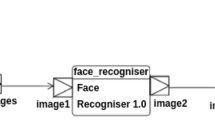Abstract
Hard real-time systems must obey strict timing constraints. Therefore, one needs to derive guarantees on the worst-case execution times of a system’s tasks. In this context, predictable behavior of system components is crucial for the derivation of tight and thus useful bounds. This paper presents results about the predictability of common cache replacement policies. To this end, we introduce three metrics, evict, fill, and mls that capture aspects of cache-state predictability. A thorough analysis of the LRU, FIFO, MRU, and PLRU policies yields the respective values under these metrics. To the best of our knowledge, this work presents the first quantitative, analytical results for the predictability of replacement policies. Our results support empirical evidence in static cache analysis.
Similar content being viewed by others
References
Al-Zoubi H, Milenkovic A, Milenkovic M (2004) Performance evaluation of cache replacement policies for the SPEC CPU2000 benchmark suite. In: ACM-SE 42: proceedings of the 42nd annual Southeast regional conference, New York, NY, USA. ACM Press, New York, pp 267–272
Belady L (1966) A study of replacement algorithms for a virtual storage computer. IBM Syst J 5:78–101
Ferdinand C, Wilhelm R (1999) Efficient and precise cache behavior prediction for real-time systems. Real-Time Syst 17(2–3):131–181
Freescale Semiconductor Inc (2002) MPC750 RISC Microprocessor User Manual, Section 3.5.1. http://www.freescale.com/files/32bit/doc/ref_manual/MPC750UM.pdf
Heckmann R, Langenbach M, Thesing S, Wilhelm R (2003) The influence of processor architecture on the design and the results of WCET tools. Proc IEEE 91(7):1038–1054
Langenbach M, Thesing S, Heckmann R (2002) Pipeline modeling for timing analysis. In: Proceedings of the static analyses symposium (SAS), vol 2477, Madrid, Spain
Malamy A, Patel R, Hayes N (October 1994) Methods and apparatus for implementing a pseudo-LRU cache memory replacement scheme with a locking feature. United States Patent 5029072
Sleator DD, Tarjan RE (1985) Amortized efficiency of list update and paging rules. Commun ACM 28(2):202–208
Thesing S (2004) Safe and precise WCET determinations by abstract interpretation of pipeline models. PhD thesis, Saarland University
Thiele L, Wilhelm R (2004) Design for timing predictability. Real-Time Syst 28(2–3):157–177
Author information
Authors and Affiliations
Corresponding author
Rights and permissions
About this article
Cite this article
Reineke, J., Grund, D., Berg, C. et al. Timing predictability of cache replacement policies. Real-Time Syst 37, 99–122 (2007). https://doi.org/10.1007/s11241-007-9032-3
Published:
Issue Date:
DOI: https://doi.org/10.1007/s11241-007-9032-3




